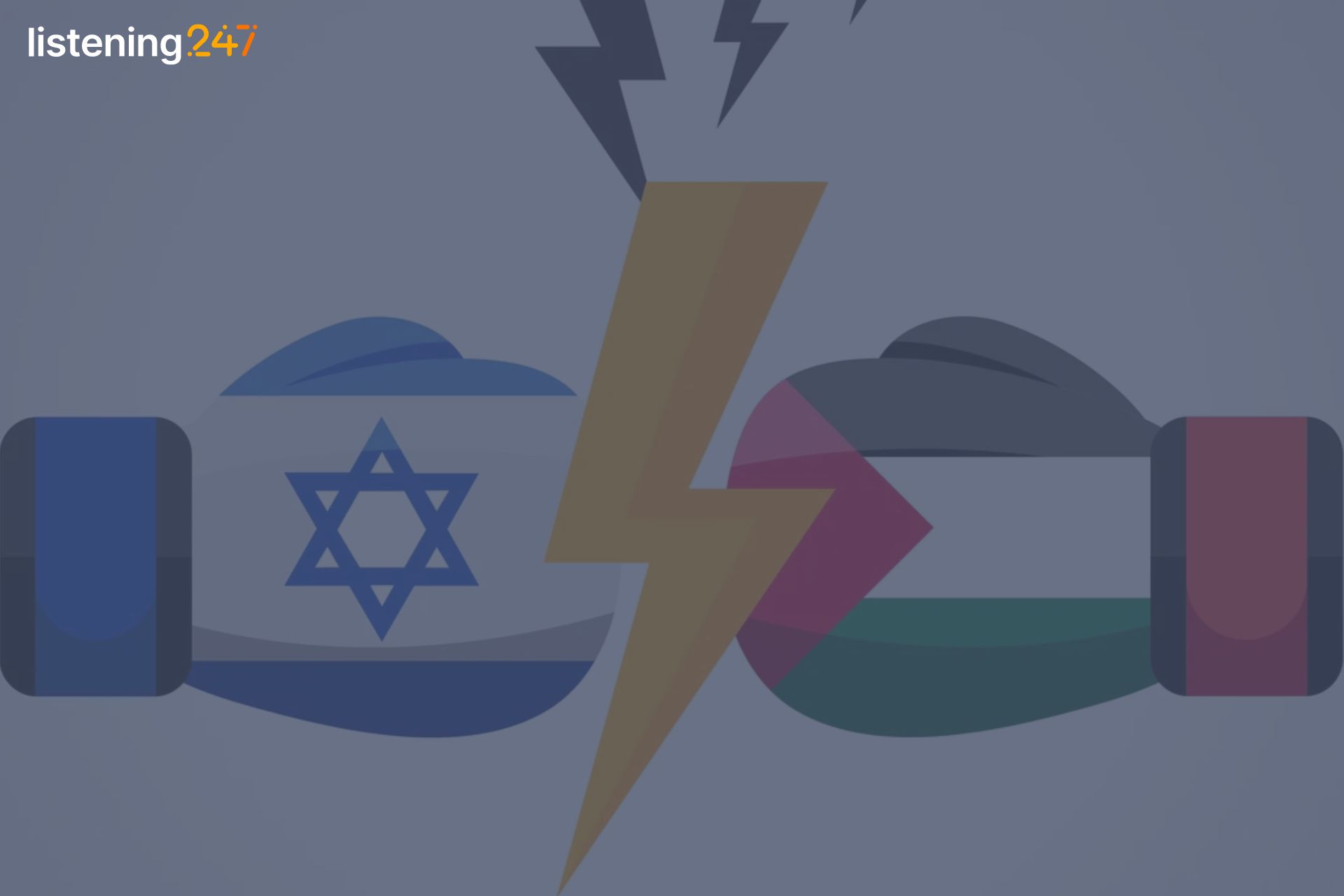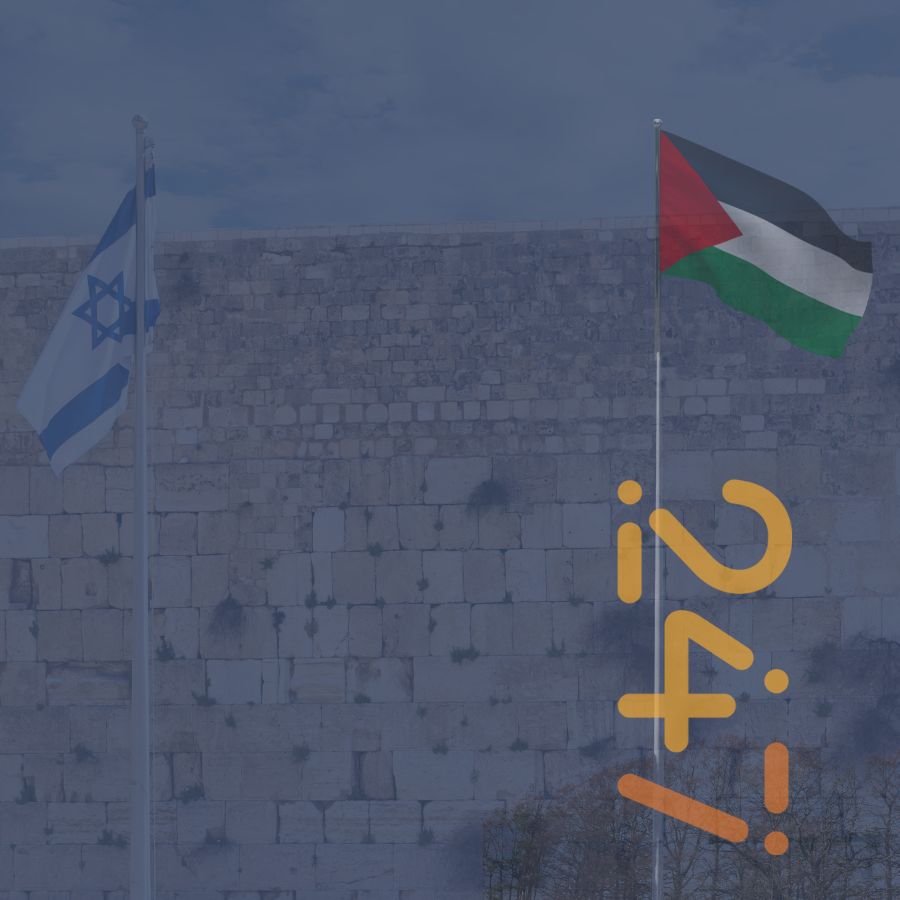
listening247 In the Press
Nikkei: Israel and Hamas Conflict Analysis
Analysis of about 1.9 million social media posts reveals significant language-based differences in opinions on the Israel-Hamas conflict. English- and French-speaking users generally show pro-Palestine sentiments, while German-speaking users tend to support Israel. These online opinion disparities could influence public opinion across different regions and countries.
Germany: A Different Kind of Country in the West
There are many pro-Palestinian posts in languages other than German.
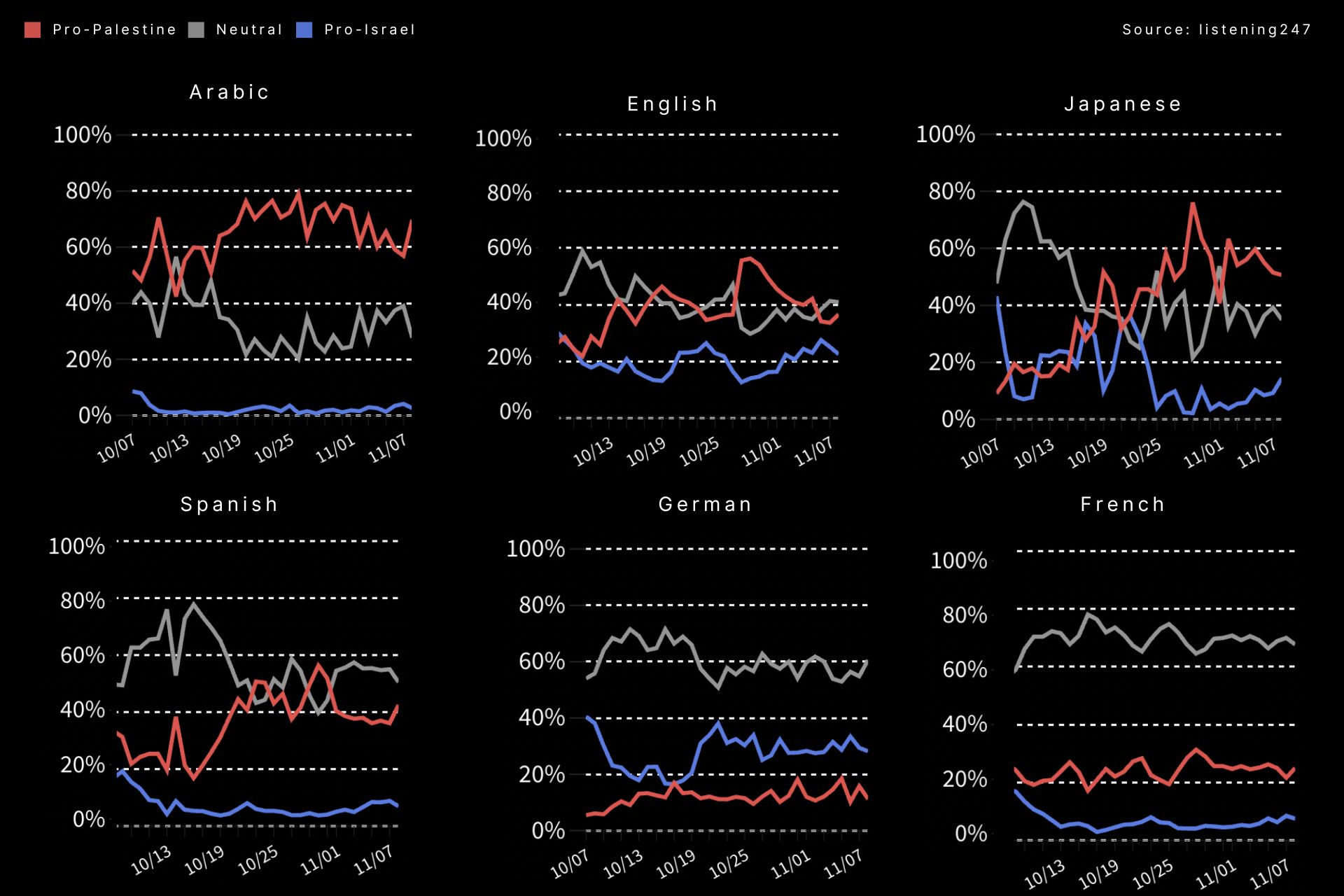
Fig 1. Analysis of over a million social media posts in various languages to see how many are Pro-Palestine, Pro-Israel or Neutral
The analysis covered about 1.9 million posts across Twitter, Instagram, YouTube, and blogs from October 7 to November 8, discussing the Gaza conflict. Using machine learning, listening247 classified posts in 130 languages as pro-Palestine, pro-Israel, or neutral based on language, hashtags, and emojis. The trends were then analyzed by the Nihon Keizai Shimbun.
English had the highest number of posts, totaling 1.1 million, with 38% pro-Palestine and 20% pro-Israel. French and Spanish also showed higher pro-Palestine sentiment, at 24% and 34%, respectively. Japanese posts have decreased since November, but overall, support for Palestine remains strong. In Arab countries, where anti-Israel sentiment is rising, Arabic posts are over 60% pro-Palestine.

Fig 2. A post to X written in English expressing sympathy for the Palestinian people (some images have been edited)
Support for Palestine is prevalent on Western social media, but pro-Israel sentiment in German posts significantly exceeds pro-Palestine support, with 27% compared to 11%. Due to its historical context and stance since World War II, Germany has consistently supported Israel. In early November, Germany banned pro-Palestinian groups from operating in the country. Chancellor Scholz reaffirmed the government’s position on November 17, declaring that "solidarity with Israel is beyond doubt."
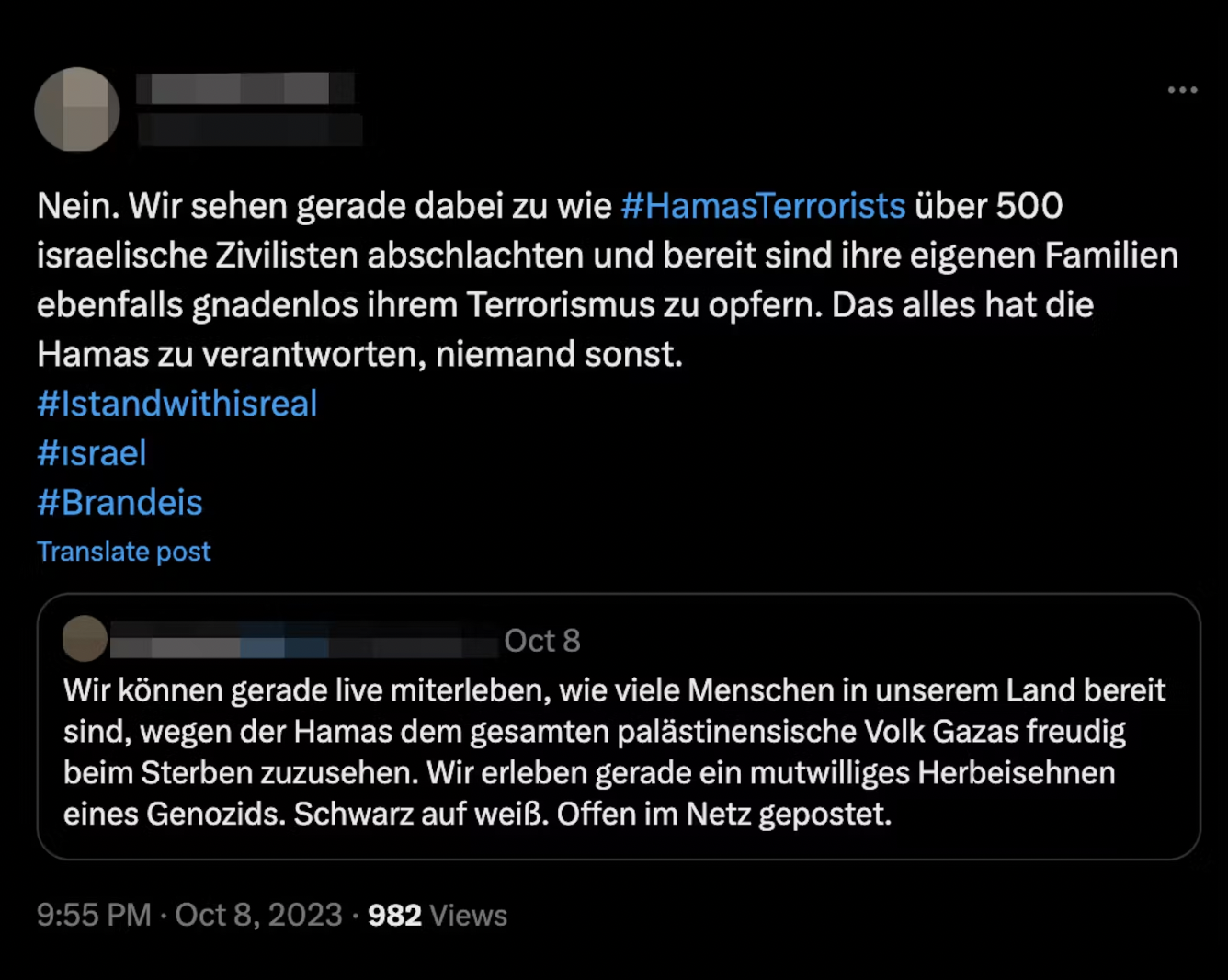
Fig 3. A post by X in German condemning the Hamas attacks (some images have been edited)
The differences between India and Pakistan are clear
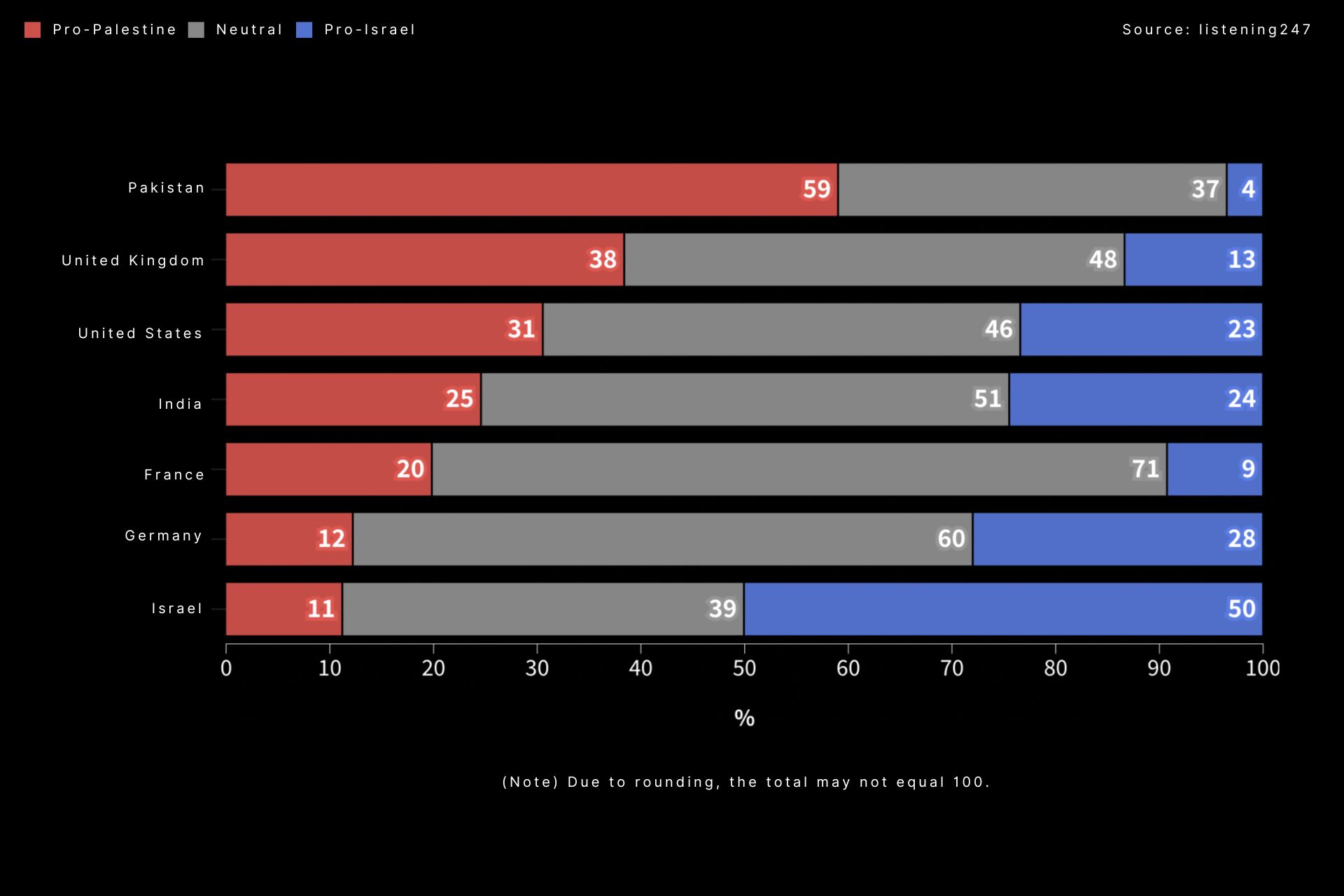
Fig. 4 Percentage of opinions by country: (Top 7 countries with the most posts)
Regional analysis of social media posts revealed that India had the highest volume of posts globally, with over 70% in English. Among these, 24% were pro-Israel, significantly higher than in France and the UK. Given that about 80% of India's population is Hindu, support for Palestine was relatively low. In contrast, neighboring Pakistan, an Islamic country, had nearly 60% pro-Palestine posts. Among English-speaking countries, the US, with its pro-Israel government stance, had 10 percentage points more pro-Israel sentiment than the UK.
There is little neutrality on Instagram
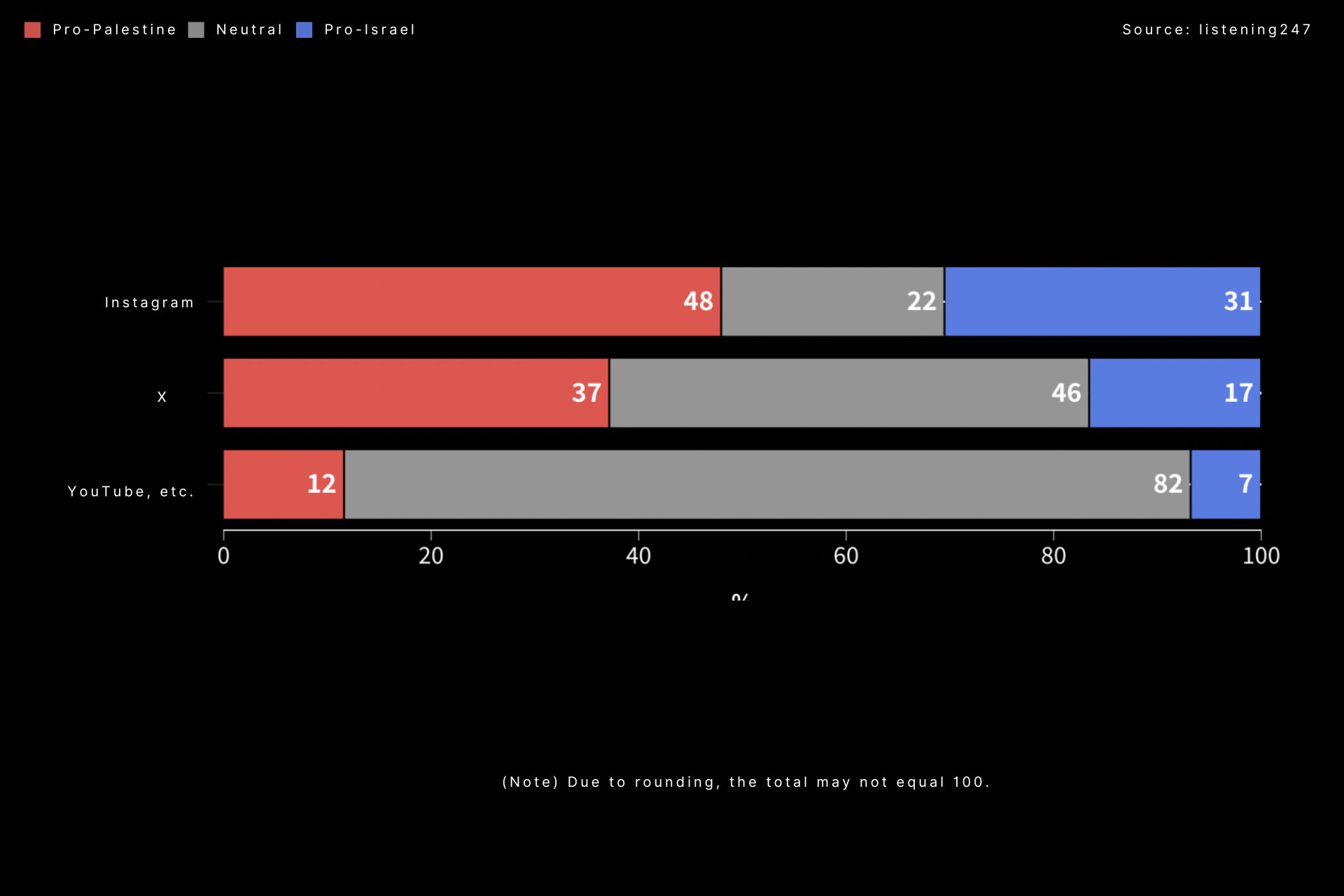
Fig 5. Proportion of opinions by SNS
There was a notable difference in opinion on Instagram, where 48% of posts were pro-Palestinian and 31% were pro-Israel, with only 22% being neutral, the lowest among social media platforms. Instagram's user base, primarily young people, saw a clear divergence in opinions following clashes and explosions at various locations. On X, neutral posts accounted for 46%, while YouTube and other video platforms had 80% neutral posts. Overall, pro-Palestinian posts outnumbered pro-Israel posts by 5 to 20 percentage points across all platforms.
Conclusion
The analysis of social media sentiment reveals distinct regional and platform-based differences in opinions about the Gaza conflict. While Western social media, particularly Instagram, shows a strong pro-Palestinian stance, platforms like X and YouTube have higher proportions of neutral posts. In contrast, countries like Germany and India exhibit significant pro-Israel sentiment, with India's Hindu majority reflecting lower support for Palestine compared to Pakistan. These varied perspectives underscore the complexity of global sentiment on this issue and highlight the need for nuanced understanding and engagement in international discourse.
Origal Source: NIKKEI
